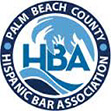DUI Breathalyzer Refusal Lawyer in Lake Worth and Wellington
What Happens When a Person Refuses To Submit To a Breath Test In Florida?
Any person who accepts driving privileges in the state of Florida is deemed to have consented to a breath test when an officer has probable cause for DUI. The consequence for refusing to submit to a breath test is the suspension of your license for one (1) year.
However, refusing to take the breath test a second time can result in a license suspension of eighteen (18) months and the criminal charge of Refusal to Submit to Chemical or Physical Test. Commonly known among law enforcement as “Second Refusal,” a conviction for this charge has serious penalties, including the possibility of a jail sentence of one year.
On the other hand, submitting to a breath test can often be just as harmful as refusing. The breath test typically consists of blowing air into an Intoxilyzer (formerly called a Breathalyzer) that measures your breath alcohol level.
If your alcohol level is .08 or above, your license will likely be suspended regardless of the fact that you cooperated with law enforcement by giving a sample of your breath.
Should I Refuse the Breath Test?
From an evidentiary perspective, refusing a breath alcohol test during the course of a DUI investigation is almost always the right choice. Although a refusal in Florida means losing your license for at least a year, it also means the prosecution has to rely on physical signs of impairment other than a scientific number. In many cases, the absence of a breath test makes it harder for the Assistant State Attorney to prove beyond a reasonable doubt that you are guilty of Driving Under the Influence.
First-time alleged offenders certainly have the incentive to refuse a breath test because they can almost immediately receive a hardship license (for work purposes only) from the DMV’s Bureau of Administrative Reviews while also avoiding possible self-incrimination in their criminal case; but what if the accused has previously been arrested for DUI?
In cases involving a second arrest but first refusal – meaning the defendant agreed to do the breath test the first time around – it still makes sense to refuse. The length of administrative suspension of your driving privilege is still one year, and you can still apply for a hardship license (though on a second DUI, you must wait a period of 90 days to apply). The choice about whether or not to blow, however, becomes more challenging if the accused has previously refused. Refusing a breath test a second time comes with heavier consequences, both from an administrative and criminal standpoint.
Refusal to Submit a Breath Test in Palm Beach County
Refusal of a breath alcohol test after having previously refused on another DUI case is a criminal charge separate and apart from DUI, called “Refusal to Submit to Chemical or Physical Test,” “Refusal to Submit to Testing,” or sometimes simply “Second Refusal.” Regardless of what you call it, the fact is that refusing twice is a first degree misdemeanor punishable by a year in jail and a $1000 fine. Additionally, a second refusal increases the driver license administrative suspension from one year to 18 months and prohibits you from getting a hardship license. Florida Statute 316.1939 outlines the elements of the Second Refusal crime:
- Law enforcement officer has probable cause for DUI
- DUI suspect refuses breath test (or in some cases, a urine or blood test)
- Suspect is under arrest at the time of the officer’s request (applicable in most cases)
- Law enforcement officer reads the terms of implied consent to the suspect
- The accused refuses again after having heard the terms of implied consent
- Driving privilege was previously suspended for a prior refusal
Implied Consent Explained
Take a look at the bottom of your Florida Driver’s License; it says, “Operation of a motor vehicle constitutes consent to any sobriety test required by law.” While you may have not noticed the fine print, Florida law says that your privilege to drive in the state comes with the responsibility of providing a breath test during a DUI investigation. In other words, by getting a Florida Driver’s License, you have already implicitly consented to a breath test.
Does this mean that you are forced to participate in a sobriety test? No – unless your case involves Serious Bodily Injury or Death. However, since the legislature deems your driving privilege in Florida a contract between you and the State, your refusal to provide a breath sample (actually, they normally ask for two) is considered a breach of contract. The penalty for breaking the contract is an administrative suspension of your driving privilege. For a second refusal, an added penalty is a criminal charge and the inability to receive a hardship license.
Although the basic concept of implied consent is printed on your license, a law enforcement officer is required to read the implied consent law in its totality so that the accused is fully aware of the consequences of refusing a breath test. This warning includes the following points:
- Refusal to submit to a breath alcohol test will result in suspension of your driving privilege for one year for a first refusal, and 18 months for a second refusal.
- Refusing after your driving privilege was previously suspended for a prior refusal is a misdemeanor of the first degree.
Note that the police officer only has to read implied consent if the DUI suspect initially refuses the request for a breath test. If the accused agrees to a breath test right away, the officer does not need to read these warnings; this is not considered a violation of the suspect’s rights because, as stated earlier, the suspect has already been deemed to have consented to a sobriety test in exchange for his or her driving privilege.
What Happens with a Second Refusal Charge in Florida
When a person is arrested for DUI, the arresting officer typically gives the suspect a copy of the DUI citation. It is less common for the arresting officer to provide an additional citation for Second Refusal on scene; rather, a second refusal charge normally arises after the filing assistant state attorney (the prosecutor in charge of filing formal charges) reviews your case and determines there is probable cause for Refusal to Submit to Testing. Either way, your DUI and second refusal charges should form two separate counts in one criminal case. Even before the State files formal charges, the clerk assigns a court case number for your DUI case and sends you a Notice of Hearing with the date, time and place of your Arraignment (formal reading of the charges). After arraignment, you will likely have a series of court hearings designed to give you time to request and review evidence, weigh your options, negotiate the plea offer, and decide whether you wish to resolve the case or go to trial. More often than not, the prosecution will ask for significant jail time on a Second Refusal case.
Note that, even if your DUI case is weak, the prosecution can pursue a Second Refusal charge. Refusal to Submit to Chemical or Physical Test is a separate charge and does not require proving beyond a reasonable doubt that a defendant was Driving Under the Influence. It only requires proof that the law enforcement officer had probable cause for DUI – a much lower standard of proof. For this reason, it is usually easier to prove guilt on a Second Refusal charge than a DUI. A Second Refusal charge provides great leverage to the prosecution because they have two bites at the apple in securing a conviction.
Hiring an Experienced Breathalyzer Refusal Lawyer in Lake Worth
Our criminal defense law firm has extensive experience in DUI and Second Refusal cases. Founding attorney Lourdes Casanova is a former prosecutor for Palm Beach County who has litigated hundreds of DUIs throughout her career. By hiring Casanova Law for your Second Refusal case, your case will benefit from:
- Immediate investigation of the facts
- Dissection of police action in search for legal or procedural errors
- Demand for full disclosure of evidence from the Government
- Negotiation with the prosecution regarding reduction of charges or plea offer
- Protection of your Rights
- Detailed, insightful advice
- Case status updates
- Trial and litigation skills
Or goal is to get your case dismissed or reduce the penalties. Due to the seriousness and complexity of a Second Refusal charge, it is critical to receive the advice of a lawyer experienced in DUI law.
At Casanova Law, leading Attorney Lourdes Casanova has extensive experience handling drunk driving cases and related charges in courts all over South Florida, including Wellington, West Palm Beach, Palm Beach, Jupiter, Lake Worth, Greenacres, Palm Beach Gardens, Stuart & more!
She can provide guidance and a course of action to mitigate the consequences you could face.
Schedule an Appointment Today
Call 561-236-5340 today to set up a meeting to talk about your situation. You can also fill out our online form.
Se Habla Español. Fala-se Português.








